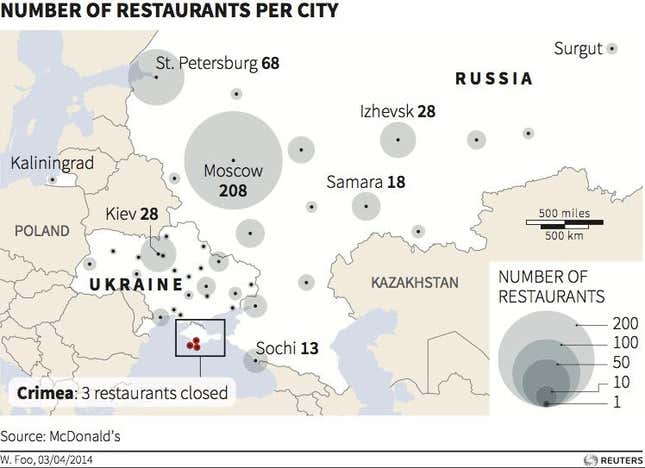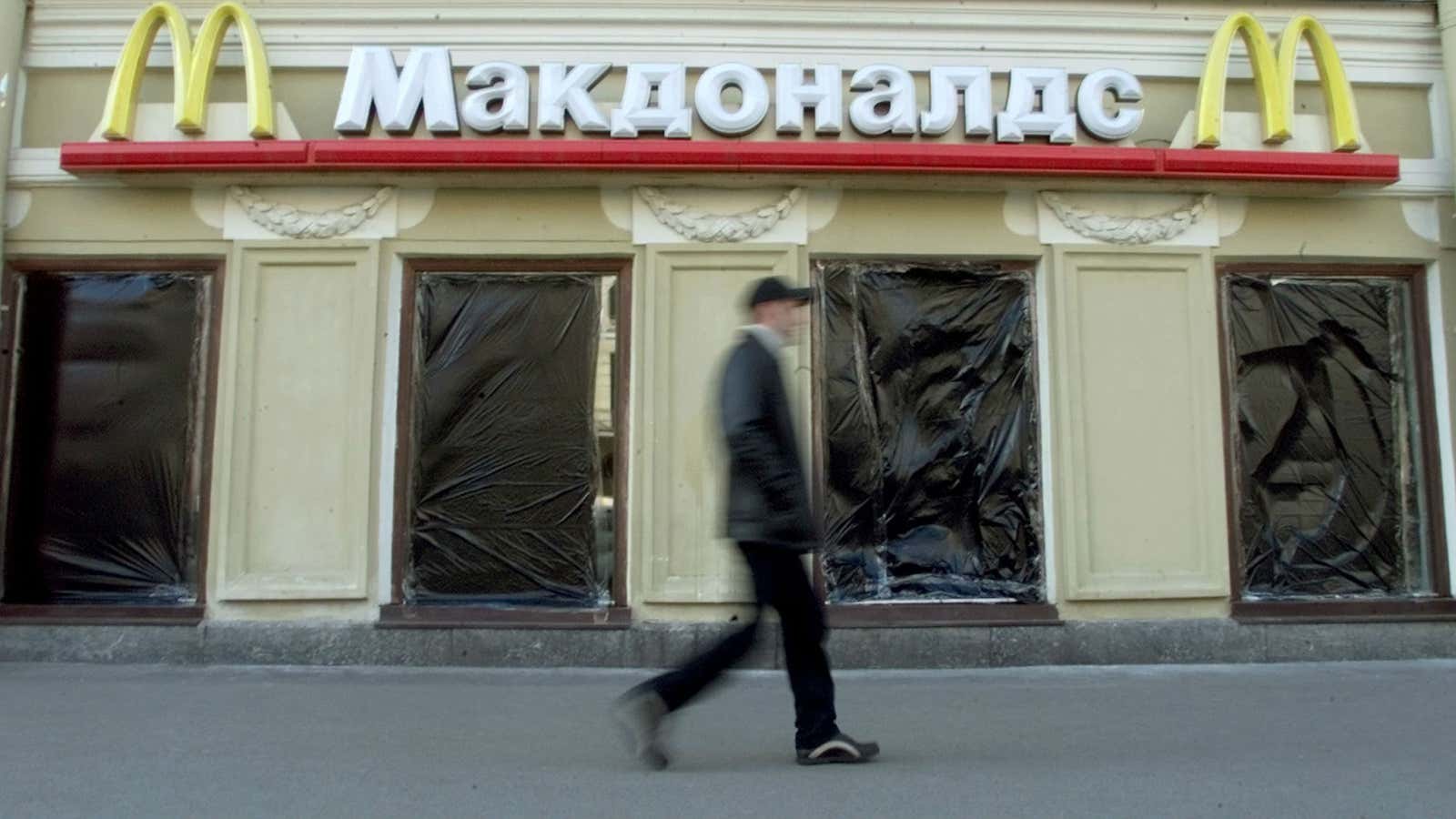When McDonald’s opened its first restaurant in Russia in Moscow’s Pushkin Square, it was welcomed as a sign that relations between the two Cold War foes were beginning to thaw. Hours-long lines formed outside the restaurant, police were called in to maintain order, and a cottage industry sprung up to let bribe-payers jump the queue. Today, a sign on the door of that McDonald’s says it has been closed for technical reasons.
Russia’s consumer watchdog has ordered four McDonald’s restaurants to suspend operations because of sanitary violations, a sign of increasingly icy US-Russia relations after Russia’s annexation of Crimea. This is bad not just for McDonald’s, but for dozens of Russian businesses that have sprung up to supply dairy, burgers and other food to the chain, which has almost 500 restaurants in the country.
The fast food company counts Russia as one of its seven “major markets” (pdf, p. 10) outside of North America. Russia, along with France, Germany and the UK, accounted for 67% of the company’s revenues in Europe.

Unlike its operations elsewhere in the world, in Russia, McDonald’s sources most of its products locally, from over 160 Russian suppliers. The move to start sourcing from within the country began as early as the 1990s, because it was cheaper. In 1990, 80% of McDonald’s food ingredients in Russia were imported, by 2010 80% were locally sourced.
Numerous small private enterprises that started up in the past two decades in order to supply McDonald’s turned into multi-million dollar companies: vegetable supplier Belaya Dacha was started by a lettuce farmer approached by McDonald’s after it had just opened in Moscow; McDonald’s dairy supplier Wimm-Bill-Dann was the first Russian consumer goods firm to list on the New York Stock Exchange in 2002, and Russia’s Barybino state farm went from being one of the least productive farms in the Moscow region to a major supplier after a deal to supply milk to McDonald’s in the early 1990s.
Sourcing locally means that McDonald’s has so far avoided many of the strict import bans Moscow issued earlier this month on all meat, fish, dairy, vegetable and fruit from the US, EU and elsewhere, in retaliation for sanctions over Ukraine.
But as the shutdown of four McDonald’s this week shows, politics is ultimately getting the upper hand. And for McDonald’s, despite its years of building up local suppliers, the crackdown may only get worse. Russian politician Vladimir Zhirinovsky called for all McDonald’s in Russia to be shut down, after the company closed its restaurants in Crimea in April.
